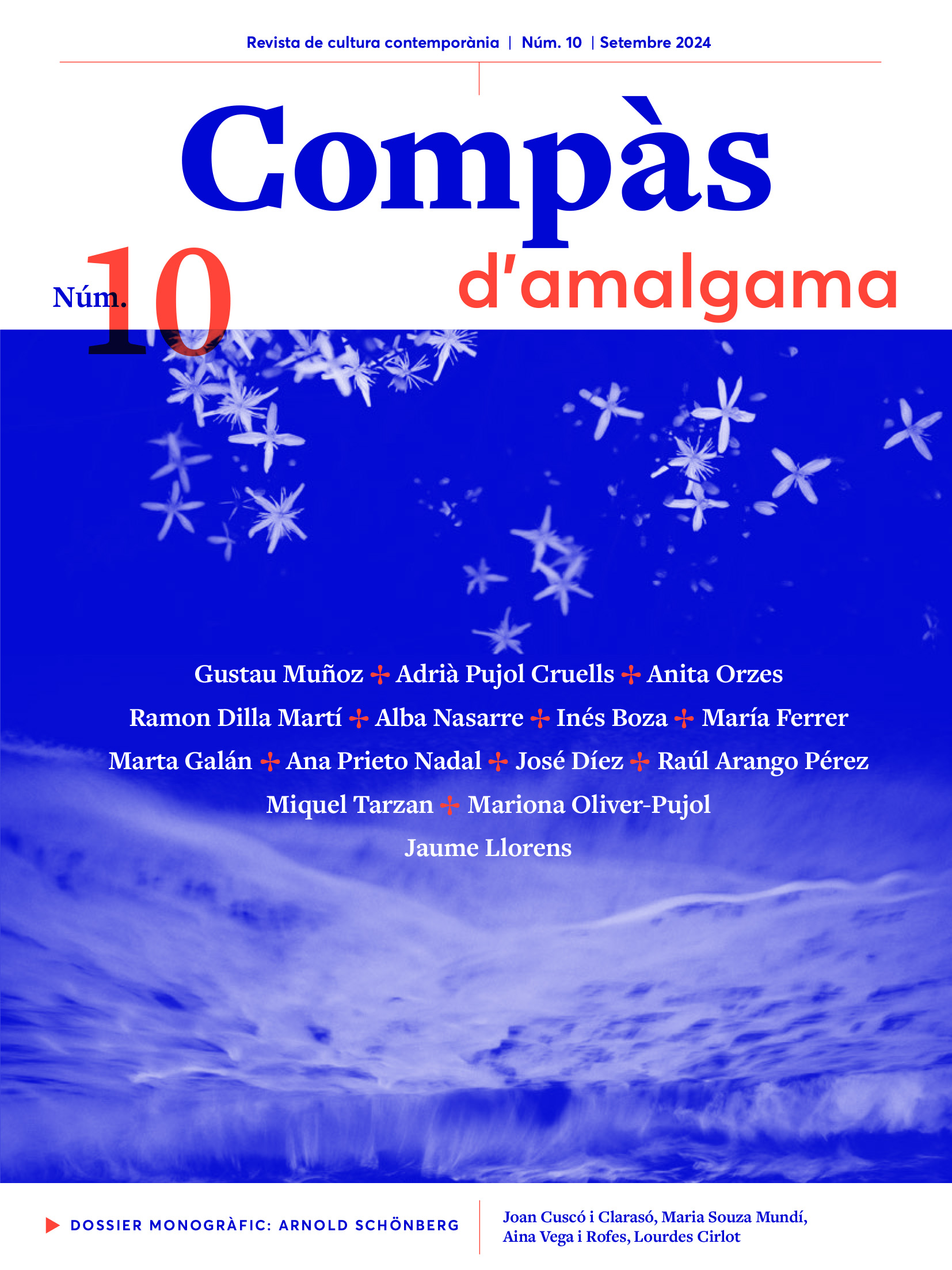Schönberg in Vienna in 1900
Towards an (aesthetic)ethics of disornamentation
DOI:
https://doi.org/10.1344/Compas.2024.10.7Keywords:
Vienna, fin-de-siècle, finis austriae, language, Schönberg, crisis of Modernity, Mahler, Loos, Kraus.Abstract
Arnold Schönberg was a prominent figure in fin de siècle Vienna, a period that not only marks the beginning of the end of the Austro-Hungarian Empire but also the profound crisis of the Modern condition. In all areas of art and culture, the relationships between subjectivity and language were being explored. This article aims to reconstruct the cultural context in which Schönberg’s music flourished, establishing a dialogue between his ideas and those of some of his contemporaries, with whom he shared an ethical principle and a concern for finding new languages more in line with the emerging Weltanschauung that came after the fall of classical subjectivity.
Downloads
Downloads
Published
Issue
Section
License

This work is licensed under a Creative Commons Attribution-NonCommercial-NoDerivatives 4.0 International License.
All articles in the journal are published under the Creative Commons Attribution-NonCommercial-NoDerivatives 4.0 International License and the digital version is open access.


